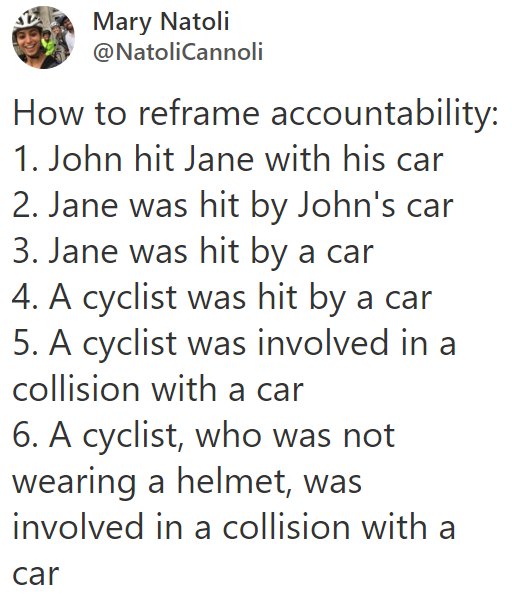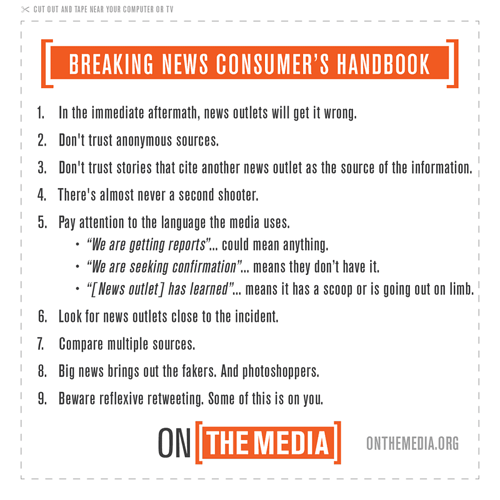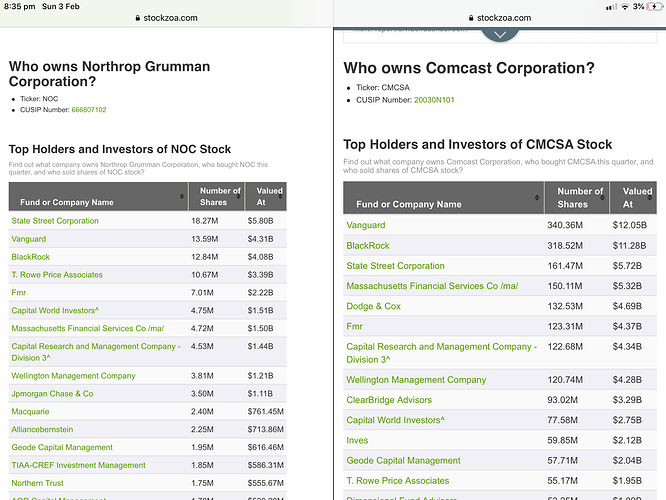A thread of resources to help with understanding how the media functions and how “unbiased journalism” is a myth that needs to die.
Thread:
Re-posting:
- A cyclist, who was not wearing a helmet, collided into a car.
I used to see (and propagate) this fairly often, back when multiple people getting shot and killed at one time was newsworthy.
I had to look it up to find the image, and it turns out they’ve done a bunch of these for different topics. I browsed a few of them, and they seem to be more about the specific tropes that appear in those kinds of stories. It’s interesting that this one, above (which I think is the first one they did), is supposed to be about mass shootings, but other than number 4, I think they could apply to just about any sort of breaking news, or even lots of news in general.
See: victim blaming
Any and all episodes of this podcast:
Yes, it’s a commercial, but it’s also a masterclass in how framing can manipulate us.
It’s hard not to feel sorry for the lamp and want to rescue it, even knowing that it’s all contrived and is literally trying to sell you something.
So when you see that shot on the front page of the paper or the evening news, it’s good to keep this commercial in mind and ask yourself what you are being expected to feel. Maybe it’s something that you should feel. There is nothing wrong with that. But it’s good to be conscious of how easily we, and everyone else, can be manipulated.
A thread on why you maybe shouldn’t use those thread-compiler apps.
Basically, they’re parasitic, using other people’s work for the app makers’ profits with no compensation to the creators.
Isn’t that the definition of social media, period?
Also, the “turn a blog into a book/turn a thread into an article” trend is dying anyhow as publishers slowly realise people do in fact read on-line, and that the Internet isn’t just for nerdy kids. Yes, it has taken them until the 2010s to figure this out. When I went to a publisher’s conference about ten years ago, most people there were still shocked, shocked! that the net wasn’t just some fad. More than one panel speaker compared using a computer to setting up a VCR.
Simple solution: if they posted in an appropriate format, people wouldn’t do that. Appropriate formats for long-form writing include blogs, forums, and even plain HTML web sites, among others. Twitter is awful for it. It’s for posting links to those things. Putting long-form stuff there is the exact opposite of what Twitter is designed for.
If you chop your stuff up in pieces and scramble it up among other people’s stuff until it’s nonsense soup, it shouldn’t be surprising that some people would rather look at a picture someone else took of the assembled puzzle rather than having to dig through all the mess themselves trying to piece it together and make sense of it.
Interestingly, the author of that rant even says way down the reply chain “I will gladly turn any twitter thread of mine into a blog post. […] I will literally copy paste every tweet of a thread into a blog post and send you a link for free.” So why not just do it right to start with?
Exactly.
There’s another wrinkle to this too – everything posted on Twitter gets automatically archived to the Library of Congress (now there’s a thought). It’s already being copied off.
Yes, but presumably the LoC isn’t making money off of it and refusing to compensate the creators.
That’s the problem. Not the archiving. And if Twitter is where the initial audience is, I don’t blame people for posting there. But if you want to reuse my words to make a buck? Fuck You. Pay Me.



